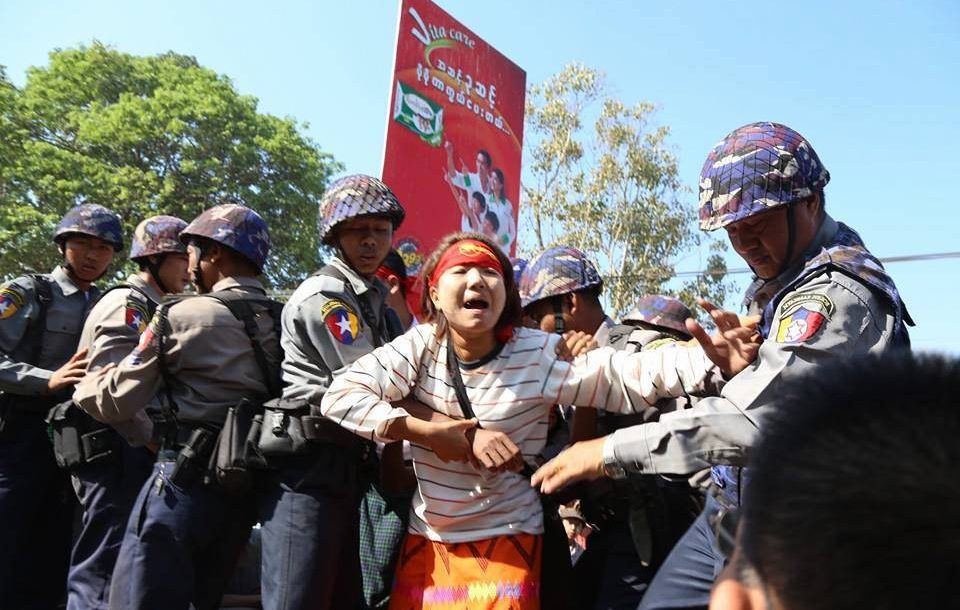Will Myanmar’s civil society help or hinder political change?
Civil society is often viewed as an agent of democratisation. At best this is a context-specific assumption. Looking at Myanmar, we can see two clear examples where civil society is not helping build democracy.
One of the defining characteristics of civil society is that it is supposedly independent of the state. However, under successive dictatorial governments in Myanmar civil society has had to struggle for survival. Despite a long history of popular protests against the regime, the political space within which civil society existed has been extremely limited.
Today it is given all the freedom to carry out its social/non-political functions without much interference. Likewise, non-political civil society re-emerged in all its stripes and colours in the devastating aftermath of Cyclone Nargis in 2008, stepping into roles left vacant by an indifferent state and providing much-needed relief to victims.
The paradox here is that Myanmar’s civil society has had to operate within a legal and political space with parameters set by the very regime it seeks to change. Only when the state is fairly democratic, that is, a state which guarantees freedoms of assembly and expression, can an independent civil society exist and act as watchdogs over government actions without fear or interference.
This is the gist of the recent conversation The Irrawaddy had with Kyaw Thu, a long-time civil society actor and head of civil society organisation Paung Ku. Much as the shelving of the Myitsone Dam has been cited as a successful example of Myanmar civil society getting the government to respect public opinion, as Kyaw Thu points out, the Thein Sein government has engaged with civil society to win brownie points for itself. The government obviously signalled that there were lines not to be crossed when it began arresting leaders of the student protests over the newly-drafted education law in 2015. Those who have been arrested still languish in prison.
On a slightly different note, we have seen certain elements of Myanmar civil society doing uncivil things to the nation’s Muslims. For example, the Buddhist Sangha (not a civil society actor, strictly speaking), who have been a positive force in Myanmar’s struggle for democracy in the worst of dictatorial times, are now a serious obstacle during the current transition period.
Particularly worrying is the emergence of Ma Ba Tha, fronted by the likes of radical monk U Wirathu and openly promoting anti-Islamic sentiments. Even in the addresses of moderate monks like Sitagu Sayadaw, Muslims are to be tolerated but not recognised as political equals (emphasis mine).
In Rakhine State, where Muslims have borne the brunt of recent inter-communal violence and historical persecution and discrimination, civil society actors and organisations are hardly distinguishable from many ordinary people in their unwillingness to recognise human rights for Muslims in their areas. One might recall the GET OUT NGOs campaign launched in places like Sittwe. To my knowledge, some of those behind this campaign now work with local and international development organisations.
The point is, to the extent that civil society does not respect principles of human rights, and the political equality of people who believe in a different religion, there is no justification to call it “civil society”. So, even granting that civil society has a democratising tendency, it does not follow that it upholds liberal values, without which democracy cannot function.
While the church could have been democratising agents in countries such as Poland and the Philippines, the problem with the Burmese Sangha is that they reject liberal values. To be fair, a more direct criticism of Myanmar’s wider civil society could be that they are making little headway in the face of widespread anti-Islamic views and Islamophobia among ordinary people and a government bent on promoting this (not doing anything about it) and manipulating such feelings.
Instead of being able to democratise the government, it seems more convincing to argue that whatever political space there is for civil society, it can be attributed to the fact that Burma is being democratised – that is, from the top. As the popular saying goes, “Kyar tha nar hma nwa chan thar”(The cow is always at the mercy of the tiger).
As nationalistic-religious identity assumes new importance, a civil society which does not bridge those nationalistic-religious divides may not be much of a democratising agent.
Aye Thein is a recent graduate of the MSc Globalisation and Development at the School of Oriental and African Studies (SOAS), University of London.
 Facebook
Facebook  Twitter
Twitter  Soundcloud
Soundcloud  Youtube
Youtube  Rss
Rss 